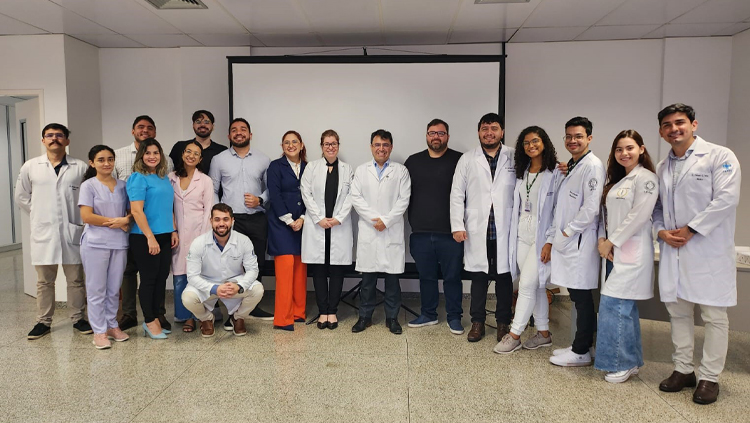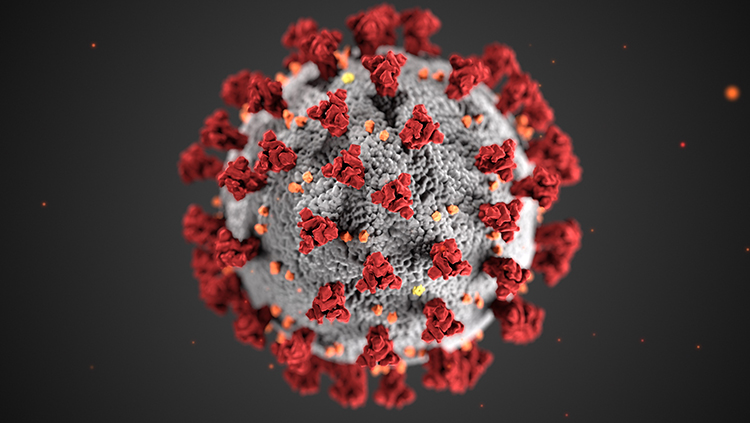What are the consequences of income inequality on academic achievement and individual earnings for children around the world?
In this Social Issues Roundtable, researchers share their findings on the impact of socioeconomic status on brain development, executive function, self-regulation, chronic toxic stress, and language.
The experts also delve into questions about causal mechanisms, ethics, and evidence-based interventions and policy changes, as well as how the media and public awareness can increase understanding of these complex issues.
Ultimately, the hope is that this research on income inequality and cognition can contribute to the larger global conversation about ways to best support the educational attainment of children from low-income households so that they can thrive in the long run.
Speakers
John Gabrieli, PhD
John Gabrieli is the Grover Hermann Professor of Health Sciences and Technology and Cognitive Neuroscience at the Massachusetts Institute of Technology (MIT). He has a dual appointment at MIT in the department of brain and cognitive sciences and in the Institute for Medical Engineering & Science. He is also the director of the Athinoula A. Martinos Imaging Center at the McGovern Institute for Brain Research. Gabrieli received a Bachelor’s degree in English from Yale, a PhD in behavioral neuroscience from MIT’s Department of Brain and Cognitive Sciences, and was a postdoctoral fellow in the psychology department at Harvard. His research has examined human brain development and how that varies in children.

Sebastián J. Lipina, PhD
Sebastián J. Lipina is the director of the Unity of Applied Neurobiology at UNA, CEMIC-CONICET, a professor of social vulnerability and cognitive development at the National University of San Martin, and a researcher at the National Council of Scientific and Technological Research (CONICET) in Argentina. Lipina is a developmental psychologist and neuroscientist working in the field of environmental influences on cognitive and emotional development at different levels of organization. The current research projects under his direction focuses on the analysis of poverty influences on cognitive development and the design of interventions aimed at optimizing children´s cognitive performance through exercising and training in laboratory, school, and community settings. As part of his work in the area of poverty and child development, he works as consultant for PAHO, UNDP, UNICEF, and several ministries of health, education and social development in different Latin American countries. He is a member of his institutional IRB, the Committee of Interdisciplinary Studies of the SRCD, and Volunteer at AAAS.
Natalie Hiromi Brito, PhD
Natalie Hiromi Brito is a postdoctoral research fellow at Columbia University Medical Center. She received her PhD in psychology with a concentration in human development and public policy from Georgetown University. Brito’s graduate training focused on how early experience influences cognitive trajectories for very young children. She has published work on learning from media, parent-child interactions, socio-emotional training for parents within juvenile detention facilities, and how early experience with multiple languages influences memory during infancy. Currently, she is examining how early environmental variations shape the trajectory of cognitive development by connecting her previous work in memory and bilingualism with research into socioeconomic disparities and neurocognitive development.

Seth Pollak, PhD
Seth Pollak is the Letters and Science Distinguished Professor of Psychology and Professor of Psychiatry, Pediatrics, Anthropology, Neuroscience, and Public Affairs at the University of Wisconsin – Madison. He earned dual PhDs from the University of Rochester in brain and cognitive sciences and in child clinical psychology before completing an internship in pediatric neuropsychology at the University of Toronto. Pollak has been a visiting professor of neurology and neurosurgery at the Montreal Neurological Institute, a visiting fellow at the American Academy in Rome, and a visiting scientist in pediatric neuroscience at the Bambino Gesu Pediatric Hospital in Rome. Pollak’s research focuses on the influences of social risk factors on children’s brain and behavioral development, with a particular focus on emotions, learning, and children’s health. Pollak has been the recipient of a National Institute of Mental Health fellowship in developmental psychopathology, the Boyd-McCandless Award for Distinguished Contributions to Child Development, the American Psychological Association’s Distinguished Early Career Award, and the Chancellor’s Distinguished Teaching Award from the University of Wisconsin. He currently serves on the Governing Council of the Society for Research in Child Development.

Eric Pakulak, PhD
Eric Pakulak is a research associate in the Brain Development Lab (BDL) at the University of Oregon. His earned his PhD in psychology with an emphasis on cognitive neuroscience, and he holds degrees in linguistics and Russian. His primary research interest is the development, implementation, and assessment of evidence-based training programs that simultaneously target at-risk children and their parents (two-generation approaches). Related research interests include the neuroplasticity of brain systems important for language and attention and the effects of early adversity on neural organization for these systems. Pakulak uses the complementary techniques of event-related potentials and functional magnetic resonance imaging to explore these questions in both children and adults. Currently, he is closely involved in several ongoing lines of research on a two-generation program developed in the BDL, including cultural adaptation, scale-up for broader implementation, and broader assessment of outcomes in both children and parents.
Silvia Bunge, PhD
Silvia Bunge is a professor in the department of psychology and the Helen Wills Neuroscience Institute at the University of California at Berkeley. Bunge directs the Building Blocks of Cognition Laboratory, which draws from the fields of cognitive neuroscience, developmental psychology, and education research. Researchers in the laboratory examine developmental changes and neural plasticity in cognitive control and reasoning skills in healthy and neurologically impaired children and adults. The laboratory seeks to better understand both negative and positive environmental influences on brain and cognitive development. Through her research and membership in the National Scientific Council on the Developing Child; Frontiers of Innovation; the Latin American School on Education, Cognitive, and Neural Sciences; and the International Society for Mind, Brain, and Education, Bunge seeks to promote academic readiness among children at risk for school failure.











